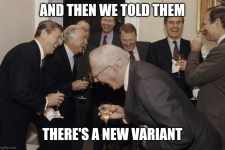Jesting International Politics

Bombs are falling outside of Kyiv. It is February 2022 and Russia has just invaded Ukraine. The Biden administration rushes to offer evacuation to Zelensky, the former comedian and now president of Ukraine. “I need ammo, not a ride” Zelensky dryly responds according to the Ukrainian embassy in London. The answer is poignant, thick with dark humour, and soon turned into endless social memes and retweets by Western leaders and publics. The image of Zelensky as a witty war hero, providing everyone with a bit of comic relief.
But perhaps this humorous framing of the war also offered a facile way to engage with its complexity? Did it afford us a smile, without needing to give war the solemn weight it required? Did the original tweet and all its infinite retweets create an entertaining distance to the horrors unfolding and a state leader’s (serious) request for help?
These are some of the broader questions that a new research article by Helle Malmvig unpacks in relations to a series of series of examples (e.g. a meme war between Donald Trump and the late Iranian general Suleimani, a hoax by a group of activists during Cop15, Russian disinformation campaign in the UK among many others). The article is published in Review of International Studies, Cambridge University Pres, and is for a short time only for free view here.
The article is part of a larger DFF research project (HumourMe) that was granted earlier this year by the Danish Research Council DFF
DIIS Experts

